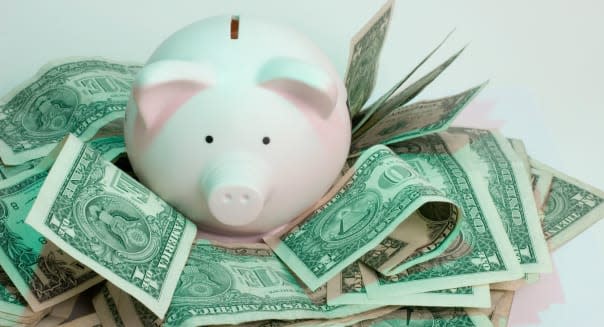You Need a Savings Account - and You Deserve a Better One

When interest rates on savings accounts hover near 0 percent, it's easy to see why so many people shrug off the question about where to park their emergency cash. Financially savvy people assume that they can get better returns by putting money in stocks or mutual funds instead of letting the it "languish" in a low-interest savings account. But everyone needs a place to keep some liquid cash.
Think of it this way: If you have your paycheck deposited into a checking account for paying bills, and sweep all your leftover savings into a retirement fund or an investment account, what will you do when you have an emergency like:
Your car breaks down and needs a costly repair the same week that you're paying your mortgage and an estimated tax payment.
Your condo association informs all owners that the cost of repairing the roof of the building after a rash of storms has depleted the condo reserves, and therefore all owners are required to pay a special one-time assessment.
Your child gets sick and needs an expensive medication, but you just dipped into the cushion in your checking account to pay the previous month's doctor's bill.
When you need cash fast, most options come with undesirable side effects. Pulling money out of an investment account can take time and sometimes incur penalty fees and taxes. On top of that, you could be forced to sell investments at an inopportune moment. Using a credit card can mean you're borrowing money at an average interest rate of 15.61 percent, according to Bankrate.
A savings account provides the necessary back-up funding for your checking account and give you the peace of mind that you don't need to rely on credit or tap into your investments when the unexpected occurs.
And while its low interest rates means that a savings account is not the go-to investment for future expenses (the "future" being anywhere from next week to five years from now), it is the right place for cash to serve as a safety net for unexpected expenses as well as a temporary parking spot for planned future purchases. That said, keeping your cash accessible doesn't mean settling for zero interest.
Why Compare Savings Accounts
A recent survey by MagnifyMoney.com revealed that 73.4 percent of Americans with savings accounts keep their money in a traditional savings account that currently pays interest rates close to 0 percent, and of those who have a savings account, the average balance comes to $28,696.
By shopping around among bank, credit union and online-only savings accounts, you can find one that will increase the interest you earn, lower your fees and still meet your needs.
%VIRTUAL-article-sponsoredlinks%The survey showed that millennials are more likely to have an online savings account (18.8 percent vs. 13 percent of non-millennials) and they're also more open to considering an online-only savings account (55.1 percent versus 28.2 percent).
Internet-only accounts often pay 0.9 percent or more on savings, according to MagnifyMoney, while bank savings accounts are paying as little as 0.01 percent. Switching from a traditional account to an online savings account means that the average American (with that $28,696 balance) would earn more than $250 a year on their cash stash instead of settling for just $5 a year in interest.
How to Compare Savings Accounts
Websites such as Bankrate.com, SavingsAccount.com, MagnifyMoney.com and MoneyRates.com offer quick rankings to compare various savings accounts rates, but your decision about which savings account to open should be based on more than just interest rates. You should also consider:
Fees. Some savings accounts charge fees unless you meet minimum balance requirements or have established direct deposit. Any fees will cut into the limited interest you earn.
Interest compounding. For the maximum interest earnings, make sure interest is compounded daily.
Overdraft protection. If you're concerned about overspending on your checking account, make sure you can link the savings account to provide overdraft protection.
Account set-up. If you're interested in saving for a variety of specific goals, such as a vacation or a down payment on a house, you may want to look for an account that allows you to set up sub-accounts so you can more easily track your savings.
Availability of funds. Find out how quickly any deposits are credited and how long it will take to transfer from one account to another. Accounts within the same bank usually allow instantaneous transfers, but some online-only savings accounts can take a day or so to complete a transfer.
Check on Federal Deposit Insurance Corp. insurance. While most savings accounts are FDIC-insured, take a moment to double-check on the insurance so that you don't risk losing your money. One of the main benefits of a savings account is the lack of risk.
Check the rules on withdrawals. Most savings accounts and money market accounts limit their customers to six withdrawals per month. Find out what happens if you make too many withdrawals.
Checking out the requirements and fees on multiple online-only accounts takes a few extra minutes longer than just opening a savings account at your usual bank. But if that time results in increased interest earnings of several hundred dollars per year, it's definitely worthwhile.
Michele Lerner is a Motley Fool contributing writer.

